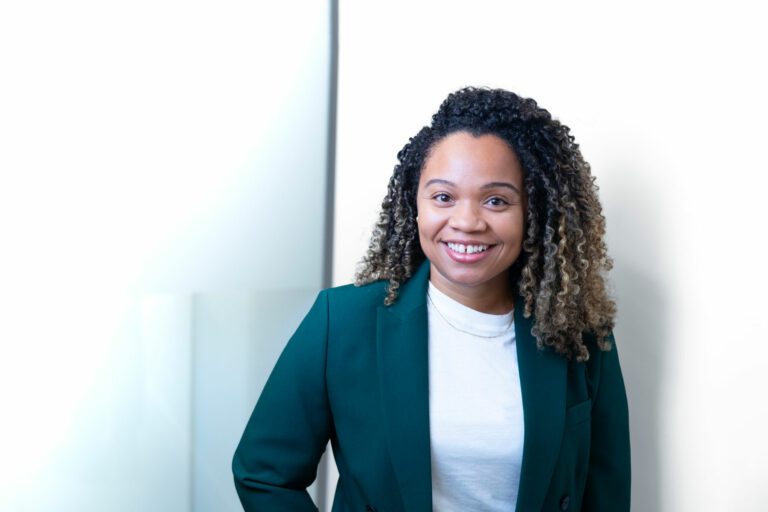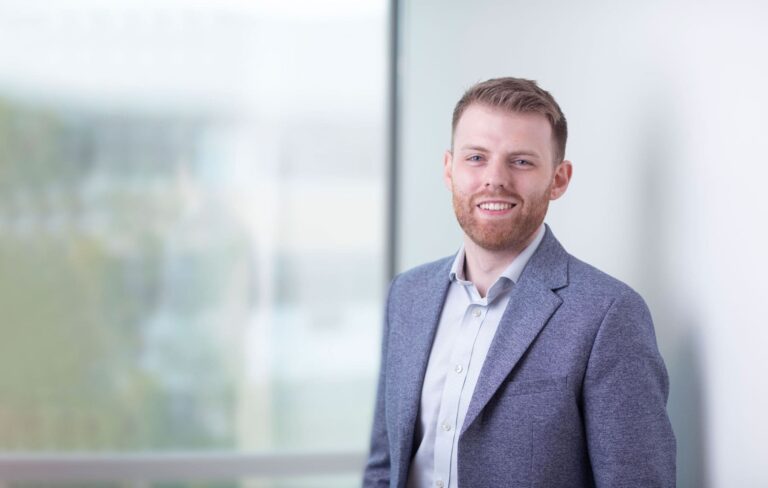Authors
What is MAINstream?
Angel investor networks bridge the gap between early-stage businesses and the capital and resources they need to grow. These networks connect promising startups with experienced investors who provide financial support, mentorship, and valuable industry connections. By pooling their expertise and capital, angel investor networks create a supportive ecosystem that fuels innovation and drives economic growth.
MAINstream is an angel investor network established by Michelmores in 2019. Its primary aim is to accelerate the growth of angel investing, particularly in the South West. Both Will Dyer and Tatiana Menezes were invited to support with the MAINstream initiative whilst in their respective Business Group teams in Corporate (Will and Tatiana) and Commercial (Tatiana). This involved organising bi-monthly pitch events where high-growth, early-stage companies were invited to present their businesses to the network.
Below, Will and Tatiana describe their trainee involvement and share their reflections on this experience.
Will’s Experience
I attended my first pitch event during my second week in the Firm’s Corporate team. It reminded me of my first experience of a court hearing in a previous seat – exciting, if a little bewildering, and I sensed there was a lot going on behind the scenes that I didn’t yet understand. Over the course of my seat, I helped to organise two more events, and learnt practically about the role of angel investors in the growth of early-stage companies. It was an unexpected part of my training, and well worth doing.
The application stage
Between pitch events, I mainly responded to questions and applications from the founders of young businesses. The network attracts applications from companies offering services or products in all sectors, with widely varying backgrounds and investment goals. Getting to know the story behind each pitch and the individuals at the centre of them made this quite a personal task, but also put my other work in the Business Group in a wider commercial context.
Preparing for pitch events
Pitch events typically take place around three weeks after the application window closes, and these were generally the busiest weeks in the team.
As soon as possible after the final applications are in, they are assessed by a panel of MAINstream investors. In the lead up to these meetings, I sent the applications to the investors, summarising key information to serve as prompts for discussion. During the meetings, I took a note of the investors’ thoughts and conclusions about each of the proposals, so that I could send personalised feedback to the applicants.
In the days that followed, I invited successful applicants to pitch – explaining the format of the events and requesting any information needed to publicise the businesses to the investor network as a whole. In the last few days before an event, I received updated slide decks from the founders, and worked with I.T. and Marketing to ensure that they were ready to be presented on the day.
The pitch event
I generally had little involvement in organising the day itself, which is put together by the core MAINStream team, with support from Marketing, I.T. and Operational Services. My main role during the events was to meet attendees as they arrived, and to film the presentations for the benefit of any investors that couldn’t attend. The events were lively and interesting, and it was nice to meet in person the applicants that I’d communicated with over the previous weeks.
Post-event
After the event, I arranged for the pitch recordings to be edited, and shared them with the MAINstream network, along with the pitch decks of applicants who weren’t selected to pitch. Occasionally, where an investor expressed an interest in a business, or had a useful contact to connect them with, I was able to facilitate an introduction.
Tatiana’s Experience
As a Commercial Trainee, I supported the MAINstream team during the pitch events (during the action!). The MAINstream pitch events take place either at Michelmores’ Exeter office (usually in the morning with the benefit of a nice breakfast spread) or at an external venue where the pitches are followed by evening drinks. As Will mentioned, our first event was quite early on during our third seat when we were just about getting our bearings. This event took place at Winslade Manor which provided a nice backdrop to the event. As Will liaised with the pitching companies, I welcomed the evening guests and guided them to the post event drinks’ location. As the first point of contact, it was great to have the initial interaction which would later help during the networking drinks. For the evening events, we invite both the wider investor network as well as any other relevant contacts.
One running theme throughout this initiative, is that Michelmores wants to assist the pitching companies as much as they are able. It understands that it might be the companies’ first time pitching for investment and / or presenting in general. Throughout the different stages, we collate feedback (whether during the selection panel meeting or following the pitches) to then share with the companies. During the sessions, I would record the investors’ feedback and comments (whilst the pitching companies vacated the room). It was insightful to hear about the strengths or concerns that investors had on the various propositions.
Whilst in Corporate, I carried out the same tasks as set out by Will which allowed me to have the full 360 experience of MAINstream.
General reflections
Will
Working on MAINstream was one of the highlights of my Corporate seat. Meeting investors and founders in person, and hearing them describe their businesses and their goals and challenges provided a firm and relatable backdrop to the company work I was involved in during the seat. It was also good practice for client relationship building. Often a business founder’s application to a pitch event was their first contact with the firm, and they generally considered me a point of contact thereafter.
If you have the opportunity to get involved in MAINstream during your training, I recommend it. It will be especially relevant if you’re interested in the Business Group, but is valuable experience too for budding private client lawyers who want to step into the shoes of individual business owners and potential clients.
Tatiana
I echo Will’s sentiment above that the experience of learning more about businesses and what makes them ‘tick’ is crucial for any trainee.
I also recognise all the other soft skills that I have developed whilst being involved with MAINstream. As a Corporate trainee, I have had to manage my usual work commitments with the work required before and after the pitches. It is important to be organised and proactive as a whole – for example, with email correspondence, administrative tasks or dealing with any last minute changes on the day of the event. This ‘can-do’ attitude will put you in good stead when working alongside other teams and it is a great opportunity to showcase your skills.
Lastly, being involved with people outside of the usual colleague and client interactions meant that I have been able to network at a different level; the topics of discussion are different and it is a great opportunity for someone at our junior level.
Overall, becoming involved with MAINstream has allowed me to work with innovative and exciting companies and further expand my knowledge of the world of business – making my Training Contract experience that extra bit interesting!


